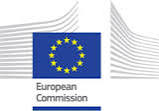Chemycal has been acquired by 3E
Learn MoreChemycal has been acquired by 3E
Learn MoreDiscover how Chemycal PRO helps you boosting your regulatory monitoring:



The European Commission has put forth a draft regulation with the aim of establishing rules for the application of Directive (EU) 2020/2184 on ensuring the quality of water intended for human consumption. The proposed regulation aims to create European positive lists of starting substances, compositions, and constituents that are authorized for use in the production of materials or products that come into contact with water intended for human consumption.
The European positive lists are intended to cover various types of materials, including organic, cementitious, metallic, enamels, ceramic, and other inorganic materials. These lists will specify the substances, compositions, and constituents that meet the required standards for ensuring the safety of drinking water.
The draft regulation is open to public comments until the 16th of November 2023. Link to public consultation.
Key provisions of the draft regulation include the following:
Use of Existing Lists: Article 11(3) of the Directive allows for the use of lists established by the European Commission pursuant to Article 5 of Regulation (EC) No 1935/2004 as a source for creating the first European positive lists under the Directive. These lists are expected to provide a higher level of certainty regarding the safety of substances when used in contact with drinking water.
Migration Limits: The draft regulation specifies that migration limits, which define the maximum tolerable concentration at the tap, should be determined based on the parametric values set out in Directive (EU) 2020/2184 and Commission Regulation (EU) No 10/2011. These limits should be adjusted based on the proportion of potential exposure from materials in contact with water.
Expiration Dates: The first European positive lists will include expiration dates, taking into account factors such as hazardous properties, risk assessments, and the need for staggered reviews.
Combinations and Extensions: Certain entries in the European positive lists may be combined, extended to related substances, compositions, or constituents, or expanded for use in different material types, as long as such actions do not compromise human health protection.
Group Entries: While group entries have been included in the initial European positive lists, they are expected to be progressively replaced by individual starting substances, compositions, or constituents to ensure a more accurate safety assessment.
Renewal Process: The draft regulation outlines a process for renewing entries on the positive lists, provided that a notification of intention and an application are submitted to the European Chemicals Agency (ECHA) within a specified deadline.
Transitional Period: To allow for a smooth transition to the European positive lists, the application of the regulation is set to commence from 31 December 2026. National systems will remain in place until this date. Substances, compositions, and constituents approved in national systems between 13 July 2021 and 31 December 2026 are subject to transitional measures.
The draft regulation has not yet been adopted or endorsed by the European Commission, and it should be noted that the views expressed in the draft are preliminary and do not constitute the official position of the Commission. However, this regulatory proposal marks a significant step in ensuring the safety and quality of water intended for human consumption in the European Union.
2013 © MyChemicalMonitoring. ALL Rights Reserved. About Us | Terms and Conditions
